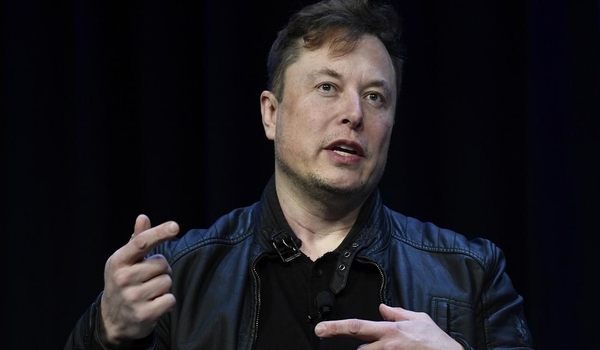Elon Musk deploys SpaceX’s Starlink Internet satellites over Ukraine after request from Vice PM
SpaceX’s Starlink satellites have now been deployed over Ukraine with more on the way, according to the company’s billionaire CEO Elon Musk, after a call for help from the country’s vice prime minister on Saturday.
Mykhailo Fedorov, who is also Ukraine’s Minister of Digital Transformation, tweeted Musk requesting that SpaceX switch on its Starlink broadband satellites to supplement the country’s Internet services which have been disrupted during Russia’s ongoing invasion.
“@elonmusk, while you try to colonize Mars — Russia try to occupy Ukraine! While your rockets successfully land from space — Russian rockets attack Ukrainian civil people. We ask you to provide Ukraine with Starlink stations and to address sane Russians to stand” Fedorov posted.
Within hours, Musk tweeted in reply,”Starlink service is now active in Ukraine. More terminals en route.”
Internet connectivity has been particularly impacted in southern and eastern regions of Ukraine where the fighting to repel the advance of Russian forces has been heaviest.
Ukraine: Russian space chief suggests ISS could crash into the US or Europe as a result of sanctions
Fedorov tweeted his thanks to the billionaire following the news. The country’s official Twitter account @Ukraine also acknowledged Musk’s actions, tweeting “Thanx [sic], appreciate it”.
Starlink satellites are able to provide broadband Internet connections from space without the need for fiber-optic cables on Earth.
The idea behind SpaceX’s project is to give high-speed Internet access to people in the world’s most remote areas through a constellation of satellites orbiting the planet.
And having Starlink satellites deployed above Ukraine means the embattled country will continue to have Internet connectivity without the threat of the Russians disabling it and cutting vital communications.
In order to connect to the Internet, users need a Starlink kit – which includes a router – and a clear view of the sky.
Ukrainians announce the launch of an ‘IT army’ to fight off Russian cyberattacks
SpaceX has sent more than 2,000 satellites into space since the first 60 terminals were launched in 2019, with plans to have as many as 42,000 satellites in the Earth’s lower orbit in the future.
The project has not been without its detractors.
NASA in particular has been vocal in its criticism of SpaceX’s plans, arguing earlier this month in a letter to the US Federal Communications Commission (FCC) that more objects in space would diminish “our planet’s ability to detect and possibly redirect a potentially catastrophic impact”.




